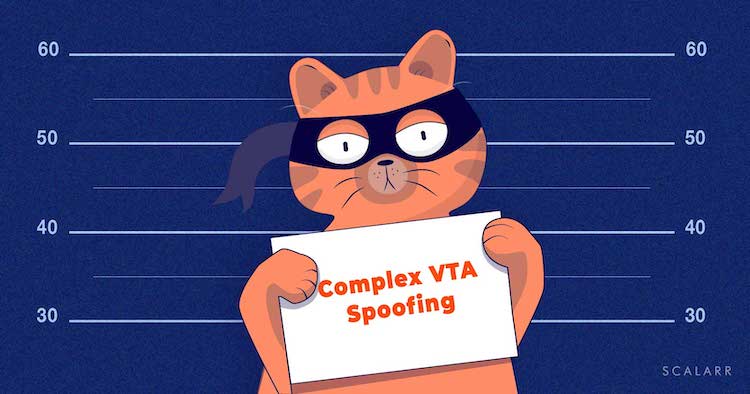Impacting nearly 60% of attributed paid installs, Scalarr’s Machine Learning algorithms discovered Complex VTA Spoofing – a new fraud type that is costing millions to the mobile marketing industry.
Fraudsters are not settling with the existing types of mobile ad fraud; they’re deploying new, more sophisticated methods that are preying on advertising campaigns left, right and center.
With new technologies in place and innovative schemes, one of the most notorious trends in mobile ads is the constant reverse-engineering that fraudsters undergo to continue to go undetected and steal marketing budgets.
But even though fraudsters are unrelenting and more alarmingly sophisticated in the types of fraud they employ, Scalarr is one step ahead. Proof of this is our recent discovery of the new, malicious type of fraud that was implanted in one of our client’s data. This new fraud is called Complex VTA Spoofing and it targets view-through attribution (VTA).
In August 2019, we found several abnormalities in certain sources of one of our client’s data. By making use of our engine embedded with multi-layered machine learning algorithms, our data science and analytics team found and analyzed said abnormalities found in the data of TextNow, a Scalarr client whose estimated savings is $72,000 in a month thanks to the discovery of Complex VTA Spoofing. That translates to total savings of up to $1 million USD per year.
With our in-depth assessment we were able to determine that Complex VTA Spoofing operates by faking tracking links to spoof clicks as impressions and completed installs are attributed by mobile measuring partners (MMP) as VTA; In essence, fraudsters target VTA to hide spam clicks as views.
“Scalarr’s Data Science and Analytics team has done a tremendous job at validating the new fraud patterns found by our Unsupervised Machine Learning engine. Having noticed an abnormally large percentage of installs with view attribution within certain sources, we conducted a deep analysis, which led to the identification of a new type of fraud – Complex VTA Spoofing,” says Sergiy Zaichenko, our Lead of Data Science and Analytics at Scalarr.
The results of our daily analysis of client data show that the estimated impact of this newly discovered fraud type is targeted to affect nearly 60% of attributed paid installs in given campaigns.
Fraudsters were operating, going completely unnoticed by clients, by targeting ad views that are typically overlooked by traditional anti-fraud solutions given the industry-wide belief that they are inherently non-fraudulent. In addition, fraud patterns in views are harder to detect.
This is definitive proof that traditional methods of analyzing data to detect fraud are simply not up to the job of protecting marketing campaigns from all types of fraud, existing or hidden. As fraudsters find loopholes and susceptible areas that traditional anti-fraud solutions neglect, they have a lot of opportunities to advance their criminal methods.
We don’t settle with only detecting existing fraud types: we are committed to also focus on discovering new, emerging threats that prey on marketing budgets, just like we did by discovering Complex VTA Spoofing. Scalarr’s engine uses several layers of Machine Learning algorithms to analyze data and patterns from mobile ad campaigns, covering all stages including views, clicks, installs, and unlocking post-install events analytics.
Maximize App Growth with #1 App Store Optimization Company
Expand app store reach, increase downloads, boost engagement, lower acquisition costs & achieve higher user LTV with our leading ASO services & technology
Contact Us TodayAnd you know what? It’s paid off as we are wholeheartedly dedicated to protect our clients on all fronts, exactly like we did with the discovery of Complex VTA Spoofing.












